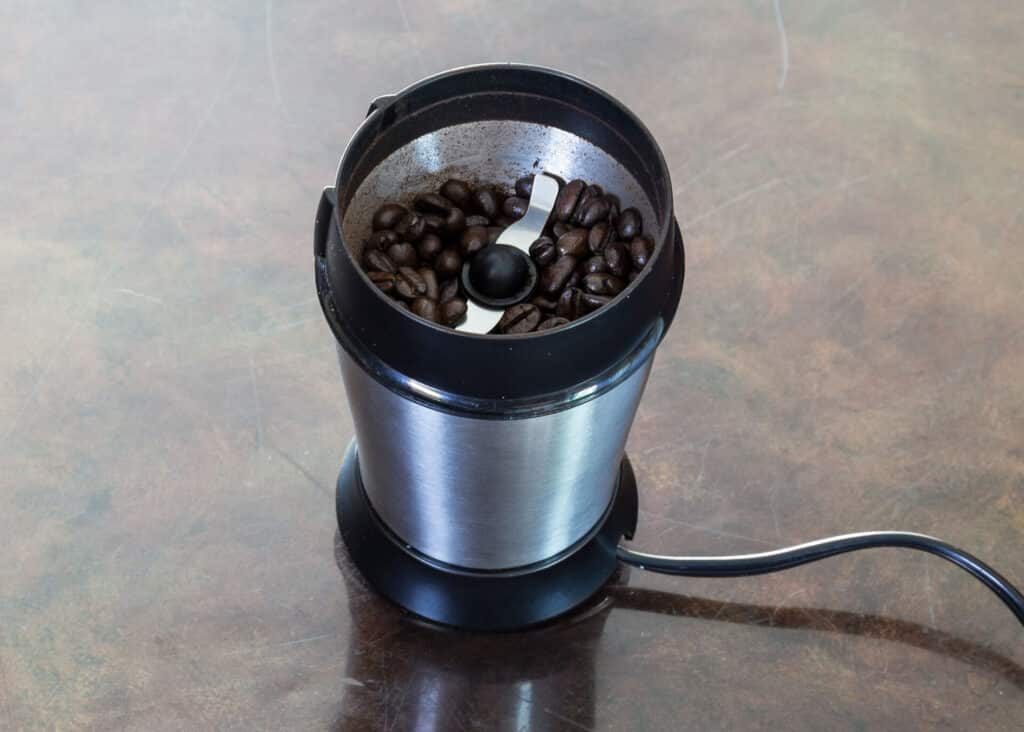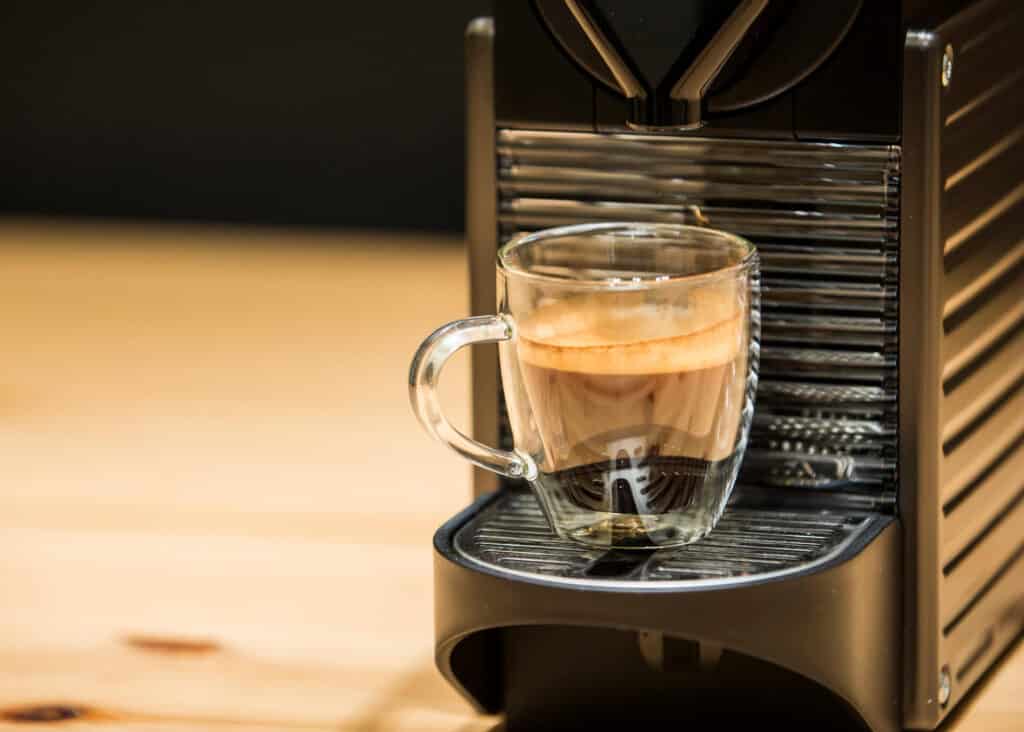You like a cup of coffee to keep you up, but you don’t want to be drinking rocket fuel. When coffee tastes very strong, it can be hard to enjoy it. But what makes coffee too strong, and is it possible to fix it?
7 reasons your coffee tastes too strong
As you start analyzing why your coffee tastes too strong, you may need to look at every step of your brewing process. While you may take for granted that you can easily brew coffee at home by turning on your coffee maker, there’s a complex process behind it.
Hot water must extract the flavors from the coffee grounds. It sounds like a simple idea, but at each step of the process, you’ve got to be careful about things like the coffee-to-water ratio. An unpleasant taste in your brew is a common sign that something has gone wrong there.
Coffee tasting too strong or bitter is usually the result of over-extraction when too much of the soluble flavors are extracted from the grounds. Under-extraction is at the opposite end of the spectrum. When this happens, coffee tastes sour or weak.
The following tips you are about to learn will help you identify the reasons behind your coffee turning out too strong.
1. Water temperature
Do you constantly end up with coffee that has an uncomfortable strength? You might check the water temperature you use for brewing your coffee.
Using hot water is necessary to extract the flavor from coffee beans. The National Coffee Association recommends that the water for brewing coffee be 195 to 205 °F (90 to 96 °C), which is slightly less than the boiling point of 212 °F (100 °C).
While you may be used to boiling water to make tea, it will burn the coffee and make it taste bitter. Brewing coffee with a drip coffee maker or Keurig won’t be an issue as they heat the water to the right temperature. However, it can be the root cause of the problem with your pour-over or French press coffee, where you control the water temperature yourself.
2. Type of grinder
Do you have days when your coffee tastes good and other days when it tastes too strong? You might want to look at your grinder if you grind the coffee yourself. Blade grinders seem cheaper or easier to use than burr grinders, but they don’t grind consistently. Since blade grinders don’t have a setting for the grind sizes and you have to rely on intuition or estimate the grind time, you will get different grind sizes every time.
If you grind your beans more finely than your brewing device calls for, whether intentionally or accidentally, the brewed coffee will taste too strong.
To combat this problem, you may want to switch to a burr grinder that gives you precisely the grind you choose. A good coffee grinder is one of the essential tools if you love coffee, and fresh-ground beans will produce more flavorful coffee.

3. Grind size
Even if you’ve got the best coffee grinder on the market, you must know the right grind size for the brewing method. Check if your grinder is on the correct grind setting if you consistently get an unsatisfactory cup of coffee.
If you use a blade coffee grinder that does not have grind settings, ensure you don’t grind your coffee too long. It is always best to grind for a few seconds, then check the coffee consistency and grind more if needed.
Generally, using finely ground coffee with drip coffee makers or manual brewers such as Origami or Chemex will result in coffee that tastes too strong.
When you have a few coffee brewing devices that you use regularly, it is easy to forget to adjust the settings on your grinder. So if you forgot to change your fine espresso grind setting and used it for grinding coffee for a French press, you would end up with a muddy liquid.
4. Brewing time
If water is in contact with the coffee grounds for too long, it results in over-extraction. It is a notorious problem when brewing with a percolator, where water repeatedly circulates through the coffee grounds. In that case, the solution is to remove the percolator from heat immediately when it is done brewing.
Too long brewing time would also make French press coffee too strong. A standard answer for how long you should let the coffee brew before plunging it is three to four minutes. While with coarser coffee grinds, you may be able to steep it a bit longer, a taste you don’t like could be a sign you’ve let it sit for too long. Next time, try stopping your brew sooner.
5. Bean quality
Coffee made with dark roast beans might challenge your palate if you drink light or medium roast. Also, coffee that is roasted inconsistently (which is fairly common when experimenting with roasting beans at home) can produce undesired results.
By examining the beans visually, you can tell if they were over-roasted (or burnt). Do they look very dark and have this oily sheen on them? It is a sign that the coffee was roasted for too long.
Extra dark roasted beans may still work for espresso or Moka Pot, especially if you add milk, half-and-half, or creamer to your coffee. However, you will not get a flavorful result brewing dark roast coffee with Chemex, V60, or other pour-over coffee makers. So unless you want to try a pour-over espresso, the extra dark roast will make your coffee taste too strong.

6. Ground coffee to water ratio
Using too much coffee can cause over-extraction of coffee. The water will take more time to filter through the grounds increasing the coffee brewing time. In this case, using less coffee is an easy fix.
As a general guideline, you can use one to two tablespoons of ground coffee for every six ounces of water for manual brewing methods. However, this will vary slightly based on your preferred brewing method.
Buying a coffee scale will be a game-changer if you are into pour-over coffee and want to improve your home barista skills. It will allow you to weigh your coffee to ensure you get the correct coffee-to-water ratio.
Do you have a capsule coffee machine such as Keurig or Nespresso? Sadly, you can’t control the amount of coffee in the coffee pod (unless you use reusable pods). However, you can adjust the amount of water used.
To fix the problem of K-Cup coffee being too strong, press the button with the largest cup size when brewing. If you are still uncomfortable with the coffee’s strength, dilute the brewed coffee with hot water.
7. Dirty brewing equipment
When you don’t clean your brewing equipment regularly, it may accumulate mold, calcium deposits, or other debris that affects the taste of your coffee. If your Nespresso or Keurig coffee tastes too strong, it might be a red flag related to your coffee maker’s health.
Giving your coffee machine a clean with dish soap and water may fix some problems. However, descaling your coffee machine using a vinegar solution could be necessary. Keurig also sells a special descaling liquid for its machines which may help fix the problem when K-Cup coffee tastes too strong.

How to fix too strong coffee: 5 tips
If you’ve already made coffee that tastes too strong and don’t want to waste it, there are some tricks to make it more palatable. Here are a few ways to improve your coffee flavor.
1. Dilute with water
The basic idea of fixing Americano coffee when it is too strong is to add water. However, be careful how much you dilute it because it can easily result in weak and watery coffee.
2. Add milk or creamer
Adding milk or creamer to coffee can camouflage bitter flavors. Try this stevia coffee creamer recipe that makes your coffee sweet without sugar. You can also experiment with heavy cream that will add more substance and a bit of natural sweetness. It’s something to consider if you haven’t tried it yet.

3. Use sweetener
The sweetener should do the trick if milk is not enough to moderate your coffee’s strength. However, if you are not a sugar fan, try some natural alternatives, such as agave syrup, honey, stevia, or maple syrup.
4. Add flavorings
You can forget you are drinking coffee, much less a bad one if you put in some flavor-masking coffee add-ins. For example, cinnamon or chocolate powder always gives a nice flavor twist. This approach would also work with instant coffee, which is not known for the greatest taste even when prepared correctly.
5. Add salt
If coffee with cream and sugar doesn’t appeal to you, why not try something different and sprinkle some salt into it? Salt neutralizes coffee bitterness without adding fat or calories, and it can bring out the natural sweetness.
Preparing coffee at home can have challenges, and you might not brew a good-tasting cup every time. However, you can fix excessive strength or bitterness, so you don’t have to pour your freshly brewed cup down the drain.
